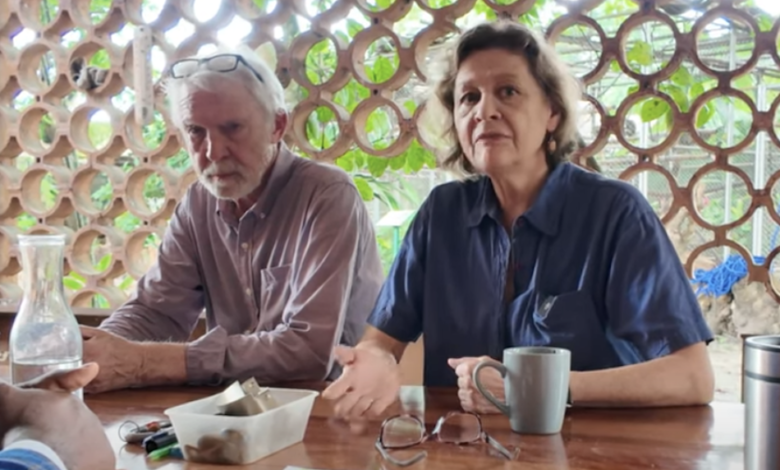From 10-Day Visas To 36 Years: American Tourists’ Journey in Nigeria

Two American tourists, Liza Gatsby and Peter Jenkins, have shared the extraordinary story of how a brief visit to Nigeria turned into a 36-year adventure. Initially arriving in 1988 with 10-day transit visas, they found themselves captivated by the country, eventually dedicating their lives to wildlife conservation and community development.
In an interview with content creator David Nkwa, Gatsby and Jenkins recounted how they never intended to stay in Nigeria beyond their approved days. However, they were drawn in by the abundance of opportunities in Science and Wildlife Conservation, the country’s warm hospitality, and living conditions that, at the time, seemed better than those in America.
Gatsby fondly recalled their first encounters with Nigerians, describing the hospitality that set the country apart from the rest of Africa. “I’ll tell you what I like about Nigerians. They would say, ‘Hey! Oyinbo, come in na, sit down, make we talk. Make I go buy you the drink.’ That is the difference between Nigeria and the rest of Africa.”
The couple became deeply involved in conservation efforts, founding a nonprofit organization called Pandas, which focuses on ranching monkey drills in Bano and Calabar, Cross River State. Gatsby emphasized the importance of conserving the drill, a rare and endangered species, highlighting that they consider all species of equal value, whether human, animal, or plant.
Peter Jenkins explained why they chose Calabar as their base, noting that it was one of the few places where monkey drills were found, aside from Cameroon. Their research and consultations with local communities led to the discovery of these rare animals in the region in 1987. With funding, they were able to make the area habitable and protect the species.
Reflecting on their early years in Nigeria, Jenkins expressed his deep affection for the country. He described how Nigeria was a haven for wildlife research in the late 1980s and early 1990s, with abundant natural resources and a welcoming atmosphere. “I love Nigeria; this is a great place. Come and live in Calabar and be at rest,” he said, reminiscing about the affordable cost of living and the vibrant community life.
However, the couple also shared concerns about the current state of Nigeria’s cultural and natural heritage. Gatsby lamented the lack of patriotism among Nigerians and the growing neglect of the country’s cultural identity, traditional herbs, and healing practices. She questioned the reliance on imported herbal remedies from China, urging Nigerians to value and preserve their traditional knowledge.
“Nigerians don’t have pride in Nigeria’s natural heritage,” Gatsby observed. “There was this huge wealth of knowledge when we came here on traditional healing and herbs from the forest, but which of these old herbalists have an apprentice who is learning from them? When these old guys are gone, all that knowledge is going to be lost.”
Their story is a testament to the unexpected paths that life can take and a call to action for Nigerians to recognize and preserve the unique cultural and natural treasures of their country.



